Don't wanna be here? Send us removal request.
Text
Workplace Wellness Challenges
What are Workplace Wellness Challenges
Workplace wellness challenges are activities and initiatives designed to encourage employees to have a healthy lifestyle. These initiatives can include physical activity, nutrition, mental health, stress management, sleep quality, and more. Many companies are realizing the importance of maintaining good employee health and are implementing workplace wellness challenges in order to improve overall productivity.
Benefits of Workplace Wellness Challenges
There are numerous benefits associated with implementing workplace wellness challenges. These include reduced healthcare costs, improved morale, and motivation, increased productivity, better overall well-being for employees, and a healthier work environment. Additionally, employers will find that their employees are more likely to stay on the job longer if they are provided with an incentive to maintain a healthy lifestyle.
Workplace Wellness Challenges
Workplace wellness can be a great way to improve morale, reduce absenteeism and increase productivity in the workplace. But when it comes to achieving these goals, there are often challenges that need to be addressed. Here are some of the most common workplace wellness challenges and how to address them:
1. Low Participation Rates: One of the most common workplace wellness challenges is low participation rates. This can be caused by lack of motivation, fear of peer judgement, or even a misunderstanding of what the program entails. To address this challenge, employers should focus on engaging employees in the wellness program and creating incentives that will motivate them to participate.
2. Lack of Education: Another challenge faced by employers is a lack of education when it comes to workplace wellness. Employees may not understand the benefits of participating in a workplace wellness program or how to make the most out of their efforts. To address this challenge, employers should provide employees with educational materials about the importance and potential effects of workplace wellness programs.
3. Limited Resources: Many employers struggle with limited resources when it comes to workplace wellness. This can be caused by lack of funds for programs, or difficulty in finding qualified instructors. To address this challenge, employers should seek out low-cost options and look into creating partnerships with local businesses and organizations that can provide expertise.
4. Unclear Goals: Another common workplace wellness challenge is a lack of clarity when it comes to setting goals. Without clear and achievable goals, employees may not be as motivated to participate in the program or may not know what results they should aim for. To address this challenge, employers should set measurable objectives that are tied to positive outcomes for both the employee and employer.
Tips for Employers on Creating Effective Wellness Challenges
Creating effective workplace wellness challenges is essential in order to ensure that employees are engaged and motivated. Here are some tips for employers on creating successful wellness challenges:
1) Develop Clear Goals- Clearly outline and explain the goals of the challenge, such as improving employee health and wellbeing or reducing absenteeism.
2) Make It Fun- Incorporate fun activities into the challenge that will help to engage employees and make them more likely to participate.
3) Offer Incentives- Provide incentives for participation in order to increase motivation among employees. These can be in the form of gift cards, rewards points, or even monetary bonuses.
4) Track Progress- Establish a system for tracking progress and provide employees with feedback on their performance to help keep them motivated.
5) Celebrate Success- Recognize and celebrate employee successes throughout the challenge in order to foster an environment of support and camaraderie.
By following these tips, employers can create effective workplace wellness challenges that will help to increase employee engagement and productivity, resulting in a healthier work environment for all. In the long run, this investment will pay off with increased morale, job satisfaction, and overall improved well-being for employees. The help of employee assistance program, helps employees to stay focused and motivated in their workplace. These programs are beneficial for both the employer and employees.
0 notes
Text
Employee Assistance Program
What is Employee Assistance Program?
Employee Assistance Programs (EAPs) are workplace-based programs that provide a variety of support services to employees. These services, which focus on physical and mental health, substance abuse, and work–life balance, provide confidential counseling, referrals, and other resources to help employees in times of stress or difficulty. EAPs also offer supervisors and managers advice and support on how to assist their employees. By focusing on prevention, EAPs help employers manage health-related costs, reduce absenteeism and improve morale and productivity in the workplace. The ultimate goal of an Employee Assistance Program is to ensure that all employees are healthy, productive, and safe at work.
Employees may access EAP services through one-on-one counseling, group sessions, telephone support, or an online portal. Services are typically available 24/7 and can be accessed anonymously if desired. EAPs generally cover a wide range of topics including stress, mental health issues, addiction, financial difficulties, and work–life balance. The program also provides additional resources such as legal consultations and referrals to community services.
Through an EAP, employers can provide their employees with the resources and support necessary for them to be successful in their jobs. This ultimately leads to a healthier, more productive workforce and a better overall working environment.
Top Benefits of the EAP Program
1. Improved Mental and Physical Health: EAPs provide employees with confidential counseling services that can help them manage mental health issues, substance abuse problems, financial concerns, and other life stressors.
2. Increased Productivity: By supporting the overall well-being of their employees, employers can ensure they are performing optimally at work, leading to improved productivity and quality of work.
3. Reduced Costs: The cost of an EAP is usually far less than the cost of dealing with employee-related issues like absenteeism or workers’ compensation claims. An effective EAP can help employers control healthcare costs by reducing the need for more expensive interventions.
4. Improved Employee Retention: EAPs demonstrate to employees that the company cares about their well-being, which leads to increased job satisfaction and decreased turnover rates.
5. Enhanced Employer-Employee Relationships: By providing employees with access to resources and support, employers can foster stronger working relationships between themselves and their staff.
An Employee Assistance Program can be an invaluable resource for employers and employees alike. By providing employees with the support they need to stay healthy, productive, and safe in the workplace, EAPs help creates a positive working environment that benefits everyone involved.
Types of EAP Program
1. Employee Counseling: This type of EAP offers employees confidential counseling services that are tailored to their specific needs. Services can include one-on-one counseling, group sessions, or access to an online portal for self-guided programs.
2. Manager Assistance: Managers and supervisors may receive guidance from the EAP program on how to assist their employees if they are experiencing difficulties. This may include advice on how to have difficult conversations, strategies for managing stress, and referrals to additional resources.
3. Work–Life Balance Support: EAPs often provide programs that focus on work–life balance issues such as childcare resources, financial planning, legal consultation services, and access to community resources.
4. Crisis Management: In times of crisis, EAPs may provide special services such as grief counseling, critical incident stress debriefings, and referrals to mental health professionals.
An effective EAP should be tailored to the individual needs of the employees and the organization. By providing comprehensive services that address the physical, mental, and emotional needs of employees, EAPs can help improve employee retention and performance while providing cost savings for employers.
The success of any organization depends on its ability to offer effective Employee Assistance Programs (EAPs). Investing in EAPs can help employers foster a positive working environment that enables employees to achieve their best. With the right resources and support, employers and employees alike can benefit from an effective EAP program.
MantraCare Wellness
MantraCare wellness provides the best employee assistance program in the world. They help both small and large companies keep their employees happy, healthy, and productive.
0 notes
Text
What is Diabetes?
What is Diabetes?
Diabetes is a chronic condition that affects the way the body regulates glucose levels. It occurs when the pancreas does not produce enough insulin, or when the body cannot effectively use the insulin it produces. This can lead to an increase in blood sugar levels, resulting in serious health complications such as blindness, heart disease, kidney failure, and stroke. Diabetes is the seventh leading cause of death in the United States, and it affects more than 28 million people. People with diabetes need to make healthy lifestyle changes such as eating a balanced diet, exercising regularly, and managing their blood glucose levels. There are also medications available that can help manage diabetes, including insulin injections and oral medications. With proper management, people with diabetes can lead healthy, active lives.
Types of Diabetes
There are three main types of diabetes: type 1, type 2, and gestational.
Type 1 diabetes occurs when the body’s immune system attacks and destroys the cells in the pancreas that produce insulin. It is often referred to as juvenile diabetes since it is most commonly diagnosed in children or young adults.
Type 2 diabetes occurs when the body does not produce enough insulin, or when the body is unable to use the insulin it produces.
Gestational diabetes occurs during pregnancy and usually goes away after childbirth.
Diabetes Symptoms
The most common symptoms of diabetes include increased thirst and urination, extreme hunger, fatigue, blurred vision, weight loss, and slow-healing cuts or bruises. If left untreated, serious complications such as kidney failure, nerve damage, heart disease, and stroke can develop. You will also feel that you are always tired, and if you keep your sugar levels high, it can lead to blurry vision. Moreover, our wounds take more time to heal properly when we have excess glucose in our system because it restricts the essential nutrients and oxygen from reaching the wound.
Risks Factors of Diabetes
Unhealthy lifestyle choices, such as being overweight or obese, eating unhealthy foods, and smoking are all risk factors for diabetes. Other risk factors include lack of exercise, family history of diabetes, age (45 years or older), high blood pressure, and certain ethnicities.
Treatment of Diabetics
The main goal of diabetes treatment is to help keep blood sugar levels within the target range. This can be achieved through lifestyle changes, such as eating healthy foods, exercising regularly, and reducing stress. In addition to lifestyle modifications, people with diabetes may need to take medications or insulin injections as prescribed by their doctor. Regular monitoring of blood sugar levels is important for making sure diabetes is well controlled.
Diabetes can be a difficult condition to manage, but with the right treatment plan and lifestyle habits, people living with this condition can lead healthy lives. By understanding your risks and taking steps to prevent or delay diabetes, you can help protect yourself from developing this chronic disease.
Medication
To treat this health condition, a person will need insulin. It can come in the form of an injection or through using a continuous pump. There are five types of injectable insulin available- short-acting, intermediate-acting, long-acting, pre-mixed, and rapid-acting. The type of insulin chosen depends on the individual and their diabetes control needs. Oral medications can also be prescribed to help regulate blood sugar levels in those with type 2 diabetes.
Home Remedies
Certain home remedies can also help manage diabetes. Eating healthy foods such as fruits, vegetables, and whole grains can help maintain blood sugar levels. Regular exercise is essential for those with diabetes because it helps the body use insulin more efficiently. Relaxation techniques like yoga or meditation can also help to reduce stress and improve overall health. It is important to speak with a doctor before beginning any new diet or exercise regimen.
Finally, it is important for those living with diabetes to make regular appointments with their healthcare team and monitor their blood sugar levels closely in order to achieve optimal health. With proper management, people with diabetes can lead healthy, active lives. By following the right treatment plan and making lifestyle changes, those with diabetes can maintain good blood sugar levels and reduce their risk of developing serious complications.
About Author
Krishan Chawla
Dietitian, Nutritionist, Health Consultant
Krishan is a certified Counselling Dietician at MantraCare who majorly deals with health and Diet Issues. He has done BSc in Nutrition and Dietetics. He opted this field because he had always been intrigued by biochemistry, which is the backbone of dietetics. He is expert in these fields: Dietitian, Nutritionist, Health Consultant, Clinical Dietitian, Therapeutic Dietitian
0 notes
Photo

There are many reasons why relationships fail. But, in general, most relationships end because of one or more of the following reasons.
You can also take online relationship counseling if you are going through any of these reasons.
0 notes
Photo






If you think you may be a highly sensitive person and find yourself feeling depressed or anxious because of your sensitivity, find an awesome therapist you like and trust to help you learn how to navigate the overstimulating world without feeling overwhelmed all the time. Mantracare provides online therapy and counseling from world's best therapists all over the world.
#mentalhealth#mentalhealthawareness#mentalhealthwellness#depression#anxiety#lifetips#mentalhealthtips
0 notes
Text
5 Effective Ways to Stop Drinking
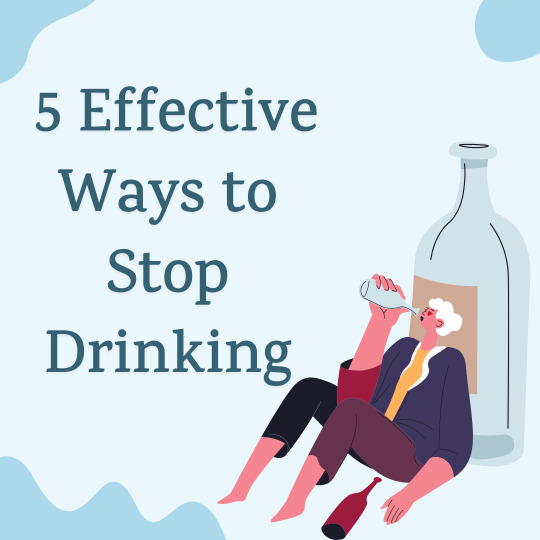
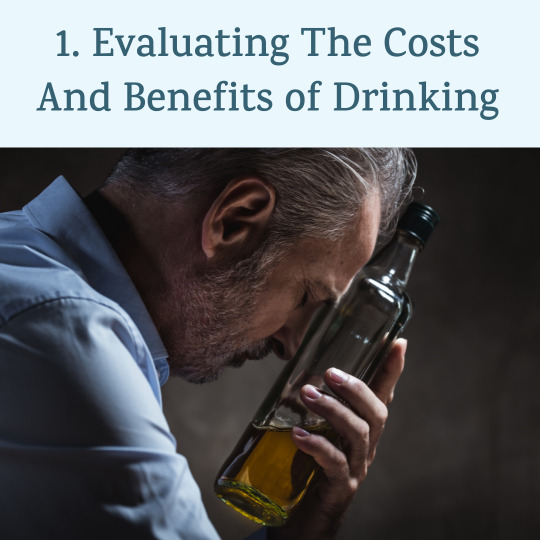

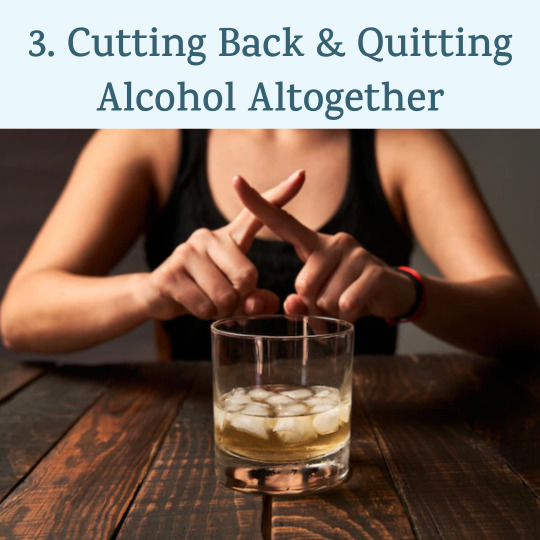
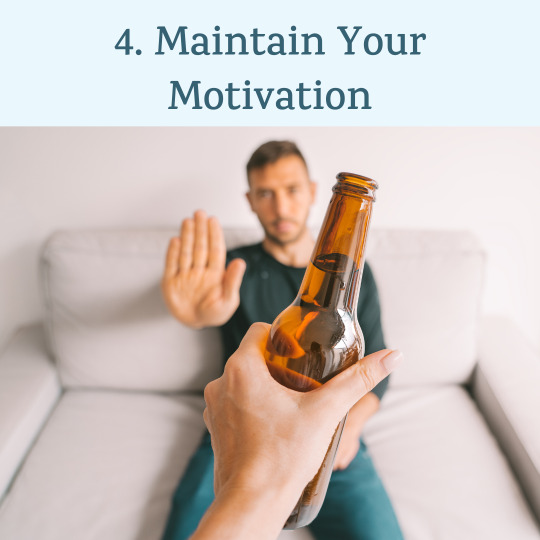

It’s not always easy to stop drinking. You may even be feeling like you’ll never be able to do it and that the addiction is too strong. Quitting alcohol for good can be hard. It is not easy to do it by yourself. But with the right support system, quitting will become a reality! Here are some tips how to stop drinking.
You can also take online addiction therapy and counseling to get rid of it. MantraCare provides the best addiction therapy and counseling.
0 notes
Video
tumblr
Therapy is a very useful thing to engage in if you are struggling with your mental health. Therapy provides an opportunity for people to talk through their feelings. This also helps them to work through problems in a safe space with trained professionals. There are some other benefits of therapy
Visit mantracare for Online therapy and counseling
0 notes
Photo

Be happy be yourself :)
Happiness is a state of well-being characterized by emotions ranging from contentment to intense joy. It can be measured in one’s own feelings, as well as in the happiness of others who are close to you. This is something that everyone strives for and wants more of, but not everyone finds it easy to achieve or maintain. In this blog post, we will discuss what it takes to live a happy life. :what is happines
0 notes
Photo
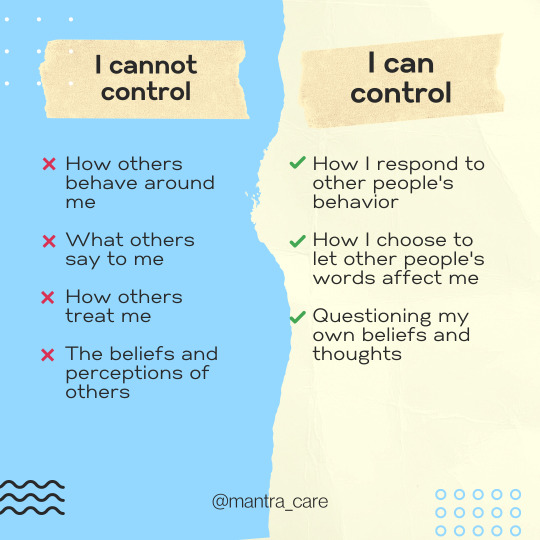
We have shared some tips which can help you to live your life easier ...
Our mental health is as important as our physical health..mantracare provides online therapy and counseling all over the world so you can get rid of your mental health problems Like depression, anxiety etc..
0 notes
Photo

No matter how stressful things get at work and at home, never lose sight of the big picture.
Mantra care has a Employee wellness program Help keep your employees happy, healthy, and productive with our wellness programs, suitable for both small and large businesses.
1 note
·
View note
Text
Alcohol and Mental Health: The Dangerous Relationship
Outpatient Treatment Low self-esteem Alcohol is often portrayed as a social lubricant, something that makes it easier for people to have fun and relax. However, the relationship between alcohol and mental health is a complex and dangerous one. Too much alcohol can lead to serious mental health problems, including addiction and depression. In this blog post, we will explore the link between alcohol and mental health, and discuss some of the dangers associated with drinking too much.
The Effects of Alcohol On Mental Health
Mental health is often something that people forget about when they think of the effects of alcohol. We often only think about the physical effects that alcohol has on our bodies, but we forget that it also affects our mental state.
Alcohol can have a negative impact on our mental health, and this is something that should be taken into consideration when drinking. Here are some of the ways that alcohol can affect our mental state:
Memory problems and lack of concentration
It is believed that alcohol can lead to short-term memory problems and difficulties with concentration and learning. This is because alcohol affects the part of the brain that is responsible for these functions. In fact, studies have shown that people who drink heavily are more likely to experience problems with their memory and concentration than those who don’t drink at all.
Mood swings and anxiety
Another way that alcohol can affect our mental health is by causing mood swings and anxiety. This is because alcohol can act as a depressant, which means it can make us feel down and anxious. It can also cause us to have difficulty regulating our emotions, which can lead to outbursts of anger or sadness. Also, studies have shown that people who drink heavily are more likely to experience depression and anxiety than those who don’t drink at all.
Sleeping problems
Alcohol can also cause sleeping problems, such as insomnia. This is because alcohol can disrupt our natural sleep cycle and make it difficult for us to fall asleep and stay asleep. Also, alcohol can make us feel tired and sleepy during the day, which can affect our ability to focus and concentrate.
Low self-esteem
Alcohol affects your mental health to the point where it can actually lower your self-esteem. This is because alcohol can make you feel down about yourself and your life. It can also make you doubt your abilities and question your worthiness. Also, studies have shown that people who drink heavily are more likely to have low self-esteem than those who don’t drink at all.
These are just some of the ways that alcohol can affect our mental health. It is important to remember that these effects are not permanent and that they can be reversed if we stop drinking. However, it is also important to remember that the more we drink, the more likely we are to experience these negative effects.
Relationship Between Alcohol And Mental Illness
This is very common for a person with mental illness to use alcohol as a form of self-medication. Alcohol can provide temporary relief from symptoms such as anxiety and depression. It can also help people feel more sociable and less shy.
In fact, the comorbid situations can be so common that it’s estimated that nearly half of all people with mental illness also have a substance abuse disorder.
The line between using alcohol to cope and developing an addiction can be blurry. For some people, drinking becomes a way to numb negative emotions and avoid dealing with personal problems.
For others, alcohol use may start out as social drinking but eventually progress to problem drinking. When alcohol use turns into abuse, it can make mental health problems worse.
Studies have found that 46 percent of people have comorbidity between mental illness and alcohol abuse. And there is 67% percent of those individuals to have anxiety comorbidity conditions. In fact, alcohol may stimulate the depressive episodes of bipolar disorder.
Although drinking alcohol has become a fashion in society, it is still very important to be cautious about it. Mental illness is followed by alcohol consumption.
Examples Of Mental Health Conditions Associated With Alcohol Use
There are many different mental health conditions that can be associated with alcohol use. Some of the more common ones include:
Anxiety disorders
Depression
Bipolar disorder
Schizophrenia
This mental disorder can be caused by alcohol use, or it can be exacerbated by it. If you already suffer from any of these conditions, drinking alcohol is likely to make your symptoms worse. It can also make it more difficult for you to manage your condition and cope with everyday life. Some common symptoms can include:
Mood swings
Paranoia
Delusions
Hallucinations
Impulsive behavior
Aggression
Problems with memory and concentration
Alcohol use can also make it more difficult for you to recover from a mental health condition. If you’re trying to manage your mental health, it’s important to avoid drinking alcohol altogether. If you do drink, it’s important to be aware of how alcohol is affecting you and to drink in moderation.
Treatment Options
It is very clear that misuse of alcohol can make someone’s mental health problems worse. It can also cause new problems and make existing ones harder to manage. If you think that you or someone you know might have an alcohol addiction. Then, there are a few treatment options that can help you overcome. These include:
Detoxification
This is the first and most important step in overcoming alcoholism. During detox, your body will rid itself of all the alcohol in your system. Moreover, it will help to make sure that you are physically and mentally prepared for treatment. Also, this can be done with the help of mental health professional. Because they will be able to help you through the difficult withdrawal symptoms.
Inpatient Treatment
Inpatient treatment is a great option for those who have a severe addiction. This type of treatment will provide you with around-the-clock care. As well as, access to support and resources that can help you overcome your addiction. Moreover, this is also a great option for those who have attempted to quit on their own and were unsuccessful.
Inpatient treatment usually lasts for 30 days, but can be longer or shorter depending on your needs. During inpatient treatment, you will participate in group therapy, as well as, individual counseling sessions. However, online therapy and counseling are a great option for those who are unable to attend traditional in-person sessions.
Outpatient Treatment
This type of treatment is also known as continuing care. It allows people to live at home and continue receiving treatment for their addiction. This can be a great option for people who have completed an inpatient program. And want to continue their recovery but need more support than what is available through 12-step programs or therapy alone.
Outpatient treatment programs vary in intensity. Some people may need to attend treatment several times a week. While others may only need to go once a week. The key is to find a program that fits your needs and schedule.
Conclusion
To conclude, alcohol affects mental health in a number of ways. It can worsen existing conditions, or it can cause new ones. If you're struggling with mental health, it's important to be aware of the role that alcohol may be playing. Talk to a mental health professional and consider online therapy and counseling for guidance.
Alcoholism is a serious disease that can be difficult to overcome without professional assistance. Seek help today!
0 notes
Photo









Eating for anxiety can be hard, but here's some foods that actually help with anxiety
Mantracare also provides online therapy and counseling for all kind of mental health problems....
0 notes
Photo

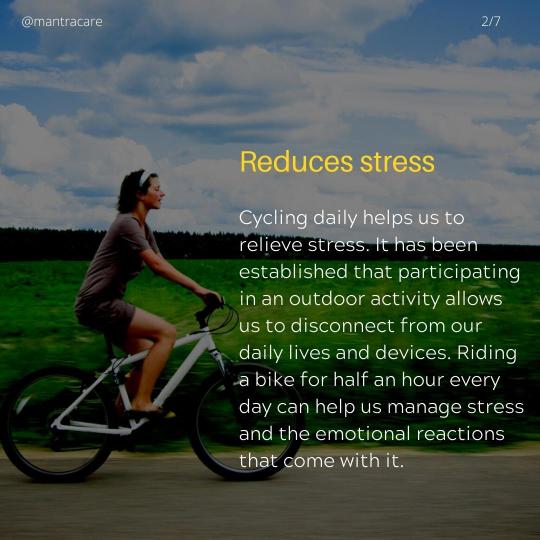





Cycling for fitness and mental health is a great exercise for anyone who wants to improve their physical health and have a disciplined mind in a leisure activity😇.....Read here all the benefits Here
you can read more blogs related to the health on our website mantracare.org
0 notes
Text
A better diet helps beat depression in young men
A recent study published in The Lancet has shown that a better diet can help beat depression in young men. Researchers looked at the diets of over 12,000 young men and found that those who ate more fruits and vegetables were less likely to be diagnosed with depression. This is not the first study to show a link between diet and mental health. In fact, previous studies have also shown that a poor diet can lead to depression and other mental health problems.
Understanding Depression In Young Men
Depression is not just feeling blue; it is a real medical condition that can be debilitating for sufferers. According to the National Institute of Mental Health, depression is one of the most common mental disorders affecting people in the United States. It is estimated that people aged 18-25 are more likely to experience depression than any other age group.
There are a number of factors that can contribute to the development of depression in young men. One major factor is diet. A poor diet can lead to nutrient deficiencies, which can impact brain function. Also, increase the risk of developing mood disorders like depression.
Moreover, depression in young men can be caused by the stress of finding a job, being in a relationship, or dealing with financial problems. The death of a loved one, break-up, or any other major life event can also lead to depression. More often. young men tend to self-medicate with drugs or alcohol when they are depressed, which can make the symptoms worse.
How Better Diet Helps Beat Depression In Young Men?
A better diet is always going to be helpful in beating down depression, but there are some specific nutrients that can be particularly helpful. Moreover, certain foods and eating patterns have been linked with an increased risk of depression. So it’s important to be aware of those as well.
There are some reasons that reflect why a better diet helps beat depression in young men:
The nutrients are most commonly lacking in people with depression. These nutrients are essential for brain health.
Second, unhealthy eating patterns like skipping meals or eating too much junk food can lead to blood sugar swings. These swings can worsen mood and energy levels, which can lead to or worsen depression.
Last but not the least, eating a healthy diet provides your body with the tools it needs to fight off infection and disease. When you’re already struggling with depression, you don’t need the added stress of an illness.
So, there are several reasons that show how a better diet helps beat depression in young men. If you are struggling with depression. Then, talk to your doctor or a registered dietitian about ways you can change your eating habits. And, eventually will improve your mood and overall health.
What Is The Link Between Food And Mood?
It is often said that you are what you eat. While this may not be entirely true, the link between food and mood is very real. The food we eat can have a profound effect on our mental health.
For example, studies have shown that there is a link between eating a healthy diet and having a lower risk of developing depression. On the other hand, diets that are high in processed foods and low in nutrients have been linked to a higher risk of depression.
So, what is the link between food and mood?
Well, it all has to do with the nutrients we consume. Certain nutrients are essential for maintaining mental health. For example, omega-three fatty acids are known to be important for brain health.
Also, deficiencies in certain nutrients have been linked to mental health problems. For example, a lack of vitamin D has been linked to depression.
Therefore, it is important to eat a balanced diet that includes:
Fresh fruits and vegetables
Whole grains
High in insoluble fibres
Carbohydrates
Protein,
Right amount of vitamins and minerals
By eating a healthy diet, you can help improve your mood and reduce your risk of developing depression. In many ways, a better diet helps beat depression in young men. Because young men are more likely to avoid vegetables and eat processed foods, they are at a higher risk of developing depression. And, eating a healthy diet is one simple way to help improve your mental health.
When To Seek Professional Help?
There are times when things seem just too hard to handle on your own. Even with a better diet, you may still need professional help to manage your depression. If you're feeling like you can't cope, don't hesitate to seek out a mental health professional for an evaluation. Remember, there's no shame in getting the help you need to feel better.
Moreover, professional help can provide you with the tools and resources you need to make positive changes in your life. There are many different types of treatment available, so you can find the one that's right for you. With the right help, you can start feeling better and living a more fulfilling life.
The prominent professional help can be online therapy and counseling which is flexible and convenient. You can find many online platforms that offer this service with the help of a simple Google search. You should understand that online therapy and counseling can be as effective as in-person ones.
A lot of people are struggling with their mental health, and they don't know where to turn. If you or someone you know is struggling, please don't hesitate to seek out professional help. There are many resources available, and treatment can make a world of difference.
Conclusion
Conclusively, it is true that a better diet helps beat depression in young men. This is based on the fact that a healthier diet leads to a healthier body and mind, which are both essential for beating down depression. In addition, a better diet can also provide the nutrients that are necessary for proper brain function, which is another important factor in fighting depression.
But still, in extreme cases, it is always best to consult with a doctor or mental health professional to get an online therapy and counseling for healthy llife. That will be helpful to get the most accurate and personalized treatment for your unique situation.
A recent study published in The Lancet has shown that a better diet can help beat depression in young men. Researchers looked at the diets of over 12,000 young men and found that those who ate more fruits and vegetables were less likely to be diagnosed with depression. This is not the first study to show a link between diet and mental health. In fact, previous studies have also shown that a poor diet can lead to depression and other mental health problems.
#mental health#depression#depression treatment#mental health treatment#mentalhealthawareneess#mentalhealthdiet#healthydiet#diet
0 notes
Photo

Online dating can be a great way to meet new people, but it’s important to be safe and smart when you’re talking to someone new. Here are some online dating tips for staying safe online.
0 notes
Video
tumblr
It is important to understand that there are both positive and negative aspects to a breakup, and it is okay to experience all of the emotions associated with it. You will get through this, but it will take time. During this time, be sure to connect with your emotions and honor them.
Breakups can lead you to depression and anxiety also...at this situation you should seek for online therapy and counseling. Mantra care can help you in that.
0 notes
Text
Sociopath Vs. Psychopath
One is born, and the other is madeOne is impulsive, and the other is more calculatingOne is violent, and the other is notGreater sense of self-worthDifferent Emotion Response
There is a lot of confusion surrounding the terms "sociopath" and "psychopath." Some people use them interchangeably, while others think there is a big difference between the two. So, what's the difference? In this blog post, we will discuss the key differences between sociopaths and psychopaths. We will also provide some tips to deal with them.
Understanding Sociopath
A sociopath is a term used to describe someone who has an antisocial personality disorder (APD). APD is a mental condition in which a person has a long-term pattern of manipulating, exploiting, or violating the rights of others. It is often described as a lack of empathy or remorse. sociopaths are often charming and charismatic, but they use these qualities to take advantage of others.
This is a personality disorder but still, a sociopath has some weaknesses. These include:
Impulsive and do not think about the consequences of their actions.
Short-tempered and quick to anger.
Often lie and cheat.
Lack empathy and do not care about the feelings of others.
Often involved in criminal activities.
These individuals often have a history of problems with the law, difficulty keeping jobs, and unstable personal relationships. They may also exhibit signs of other mental health disorders. However, not all sociopaths are violent. In fact, many are able to function quite well in society.
Understanding Psychopath
A psychopath is a term used to describe someone who has a personality disorder. This condition is often described as a lack of empathy, or the ability to feel for others. Psychopaths are those people who you might see on the news, who have committed some sort of heinous crime.
They are often described as "cold-blooded" or "calculating." It's important to note that not all psychopaths are criminals. In fact, many psychopaths lead perfectly normal lives. However, they may still be manipulative and lacking in empathy. Here are some weaknesses of a psychopath:
Impulsive and reckless
May have problems with substance abuse
Violent or aggressive
Manipulative and deceitful
Lack empathy or concern for others
Irresponsible and unable to meet obligations
Unable to feel guilty or remorseful
If you think you or someone you know maybe a psychopath, it's important to seek professional help. Psychopaths often don't realize they have a problem, and so they may not seek treatment on their own.
And, not everyone who has some of these traits is necessarily a psychopath. So, if you're wondering if someone you know is a psychopath, it's best to consult with a professional.
Sociopath vs Psychopath
These two conditions are often used interchangeably, but there are actually some key differences. Some of the key differences include:
This is the biggest difference between the two. A psychopath is born with certain traits that make them more likely to become a psychopath, while a sociopath is not.
A sociopath can be made through things like abuse or neglect during childhood, or even just growing up in a really bad environment. On the other hand, a psychopath is born with certain genetic and neurological differences that make them more likely to become a psychopath.
A sociopath is more likely to act on impulse, without thinking about the consequences of their actions. A psychopath, on the other hand, is more likely to be calculated in their actions. They're more likely to plan out their crimes, and they're less likely to feel remorse for their victims.
Violence is not a necessary component of psychopathy, whereas it is for sociopathy. Psychopaths can be cold and calculating, but they do not necessarily act out their impulses in a criminal or harmful way. Sociopaths, on the other hand, tend to be impulsive and aggressive. They may engage in criminal activity or exhibit other destructive behaviors.
This difference between the two types of personality disorders is one of the most important. A sociopath will have a much higher sense of self-worth than a psychopath. They believe that they are better than other people and deserve special treatment.
This can lead to them being manipulative and deceitful in order to get what they want. In fact, many sociopaths are known for being very charming and charismatic. This is one of the ways that they are able to take advantage of other people.
It is often said that psychopaths are emotionless and sociopaths are not. But research has found that both groups have a difficult time understanding and responding to emotions. In one study, participants were shown pictures of people with different facial expressions. And asked to identify the emotion being expressed.
Psychopaths were more likely than sociopaths or control group participants to misidentify their emotions. They were more likely to label happy faces as angry and vice versa. This suggests that they have a hard time understanding the emotions of others.
So, these are some basic differences between sociopaths and psychopaths. But remember, there is a lot of overlap between the two groups. And most people with these disorders are not violent criminals. However, if you feel like seeking professional help. Then, consider taking online therapy and counseling for better quality of life.
Tips To Deal With Both
There are many ways to deal with a sociopath or psychopath. The most important thing is to be aware of the difference between the two.
Here are some tips to help you deal with both:
Keep your distance
Don't take things personally
Be assertive
Set boundaries
Don't try to change them
Accept that they will never change
Focus on your own wellbeing
Stay calm and rational
Know your rights and get the help if needed
Take care of yourself first and foremost.
These tips will definitely help you deal with a sociopath or psychopath. Just remember, the most important thing is to be aware of the difference between the two.
Please consider professional help if you are feeling overwhelmed. Online therapy and counseling will give you the tools and resources to help you deal with a sociopath or psychopath. If you ever need help, don't hesitate to get it. Stay safe!
Conclusion
In conclusion, it can be difficult to tell the difference between a sociopath and a psychopath. However, there are some key differences that can be helpful in making the distinction. Sociopaths tend to be more manipulative and have a higher degree of charm than psychopaths.
On average, they exhibit less violent behavior and are more likely to be able to blend in with society. Psychopaths, on the other hand, are generally more erratic, impulsive, and aggressive. So, it is important to be aware of these differences when trying to identify which type of personality disorder someone may have.
4 notes
·
View notes